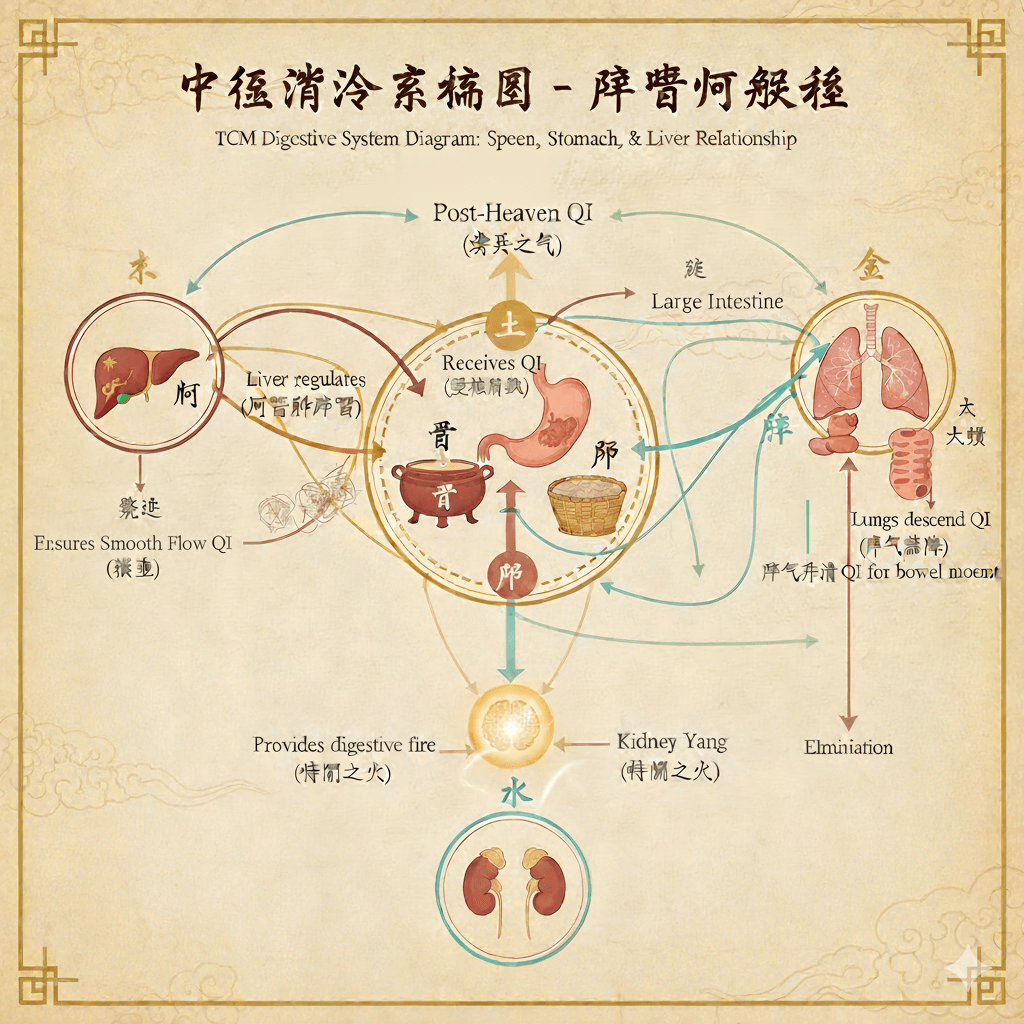Ancient practitioners didn't have microscopes, but their clinical observations led them to descriptions of internal conditions that map remarkably well onto modern concepts of gut dysbiosis, inflammation, and permeability. Traditional Chinese and East Asian Medicine (TCEAM) provides a functional language for understanding the internal environment where your trillions of microbes reside.
Firstly, the research suggests that we all need to eat at least one portion of fermented foods each day to help (https://www.cell.com/cell/fulltext/S0092-8674(21)00754-6) -but to start slowly if you are new to it.
Fermented foods to improve biodiversity
It is important to check the label for ‘live and active cultures’ and to eat a variety – not just one of these all the time.
Live yoghurt, kefir, sauerkraut, kimchi, miso, apple cider vinegar (with the mother), kombucha, sourdough bread, dhokla, Idli and Dosa, Tempeh, Natto,, some pickles (not those pickled in vinegar with sugar salt and spices), tempeh, natto, SOME cheese: e.g. gouda, mozzarella, cheddar and cottage cheese (and don't eat if your avoiding dairy!: non cows milks are a little better e.g. goats milk): Soy Sauce, fish sauce, tepache, Kvass.
Dampness and Phlegm: The Environment for Dysbiosis
In TCEAM, one of the most common digestive imbalances is the accumulation of Dampness. This condition arises when the Spleen (the primary organ system for transformation) is overwhelmed—often by a poor diet, cold foods, or chronic overthinking, and our lovely cold/damp environment here in the West Coasts of Scotland!
- TCEAM Symptoms of Dampness: Sluggishness, heavy limbs, brain fog, abdominal distension, and stools that are loose or sticky (difficult to wipe)
- Modern Analogy: Dampness perfectly describes the clinical environment associated with a high-sugar, low-fiber Western diet. It is the sluggish, sticky internal terrain that encourages the overgrowth of pathogenic bacteria and yeast, while inhibiting the growth of beneficial species. When Dampness is unresolved, it can condense into Phlegm, which is linked to more chronic, inflammatory conditions and deeper blockages—including the brain fog often tied to gut inflammation.
Heat and Cold: The Temperature of Inflammation
TCEAM utilizes the concepts of Heat and Cold to describe the activity level and inflammatory state within the digestive tract:
- Heat in the Gut: Clinically presents as inflammation, burning sensations, foul-smelling gas and stools, quick appetite, and sometimes, rapid or explosive diarrhea. This is often mirrored by modern conditions where the microbiome is highly imbalanced, leading to localized inflammation and a breakdown of the gut lining (leaky gut).
- Cold in the Gut: Presents as sluggish, slow digestion, abdominal pain that feels better with warmth, and chronic, watery loose stools. This suggests a low-functioning, hypometabolic state in the digestive system, which can correspond to poor motility or a lack of robust bacterial activity needed for efficient breakdown.
Liver Qi Stagnation: The Stress-Microbiome Axis
Perhaps the most potent overlap is the connection between stress, emotions, and the gut.
TCEAM states that chronic stress, anger, or frustration cause the Liver Qi to Stagnate. The Liver system is responsible for the smooth flow of Qi throughout the body. When it gets blocked, it often "overacts" on the Spleen and Stomach, disrupting their transformation functions.
- TCEAM Symptoms: Bloating, gas, alternating constipation and diarrhea (IBS-like symptoms), and a knotted feeling in the abdomen.
- Modern Convergence: This aligns directly with the established Gut-Brain Axis. Modern research shows that stress hormones (like cortisol) dramatically alter the composition of the gut microbiome, increase gut permeability, and disrupt intestinal motility—exactly the mechanism described by the TCM diagnosis of Liver attacking the Spleen for millennia.
The Shen (Spirit) and the Second Brain
TCM has always recognized that the condition of the digestive system profoundly affects the Shen (the mind, spirit, and emotional centre
A weak Spleen or excessive Dampness is said to cloud the Shen, leading to difficulty concentrating, worry, and emotional instability. This is the ancient wisdom behind the contemporary understanding of the gut as the "second brain," where the microbiome produces over $90\%$ of the body's serotonin, profoundly influencing our mood and mental health. A balanced internal environment, according to TCM, is essential not just for physical health, but for clarity of mind.
If you enjoyed this, you might also enjoy
Autum and the immune system: top tips
Restoring Yin: Acupuncture’s Path to Peaceful Sleep and managing insomnia naturally (TEACM Insights)
Important Notice: The Complexity of Health
Please be advised that the insights presented here, including those rooted in TCEAM and modern science, offer general guidance and a framework for understanding health. Human constitution is highly individual, and generalised recommendations (especially regarding herbal medicine and complex diagnoses like the microbiome) may not be suitable for your unique condition or TCEAM pattern. Your specific imbalances, such as Dampness, Heat, or Qi deficiency, require personalised assessment. Always consult with a licensed practitioner—such as a TCM herbalist, acupuncturist, or your GP —before applying any principles, formulas, or dietary changes discussed on this site. We assume no responsibility for how you choose to use the information provided.
You can book an online consult here

